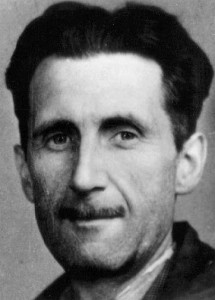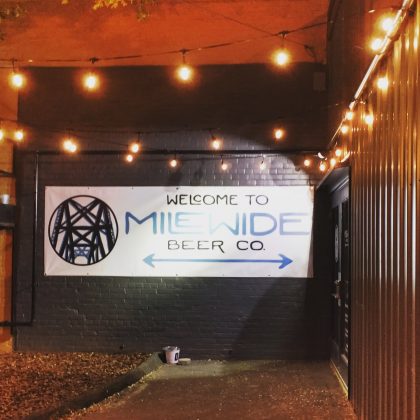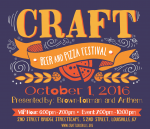 Years before most of us were born, there was an Englishman named Eric Blair, who is better known by his pen name, George Orwell.
Years before most of us were born, there was an Englishman named Eric Blair, who is better known by his pen name, George Orwell.
During a lifetime cut regrettably short, Orwell spent much of his writing career pondering abuses and misuses of the English language. Orwell decried the mutability of language and words, particularly when these bastardized word meanings were deployed unnaturally, to become instruments of bad intent, or sometimes even de facto weapons against freedom itself.
Now, it is clear that the decline of a language must ultimately have political and economic causes: it is not due simply to the bad influence of this or that individual writer. But an effect can become a cause, reinforcing the original cause and producing the same effect in an intensified form, and so on indefinitely. (Orwell)
In our day and age, we remember Orwell primarily for his anti-totalitarian novels, including “Animal Farm” and “1984,” the latter of which introduced the seminal concepts of “doublethink” and “newspeak.” Subsequently, another word was coined to meld these ideas into one enduringly disturbing tool for the use of dictators and advertising directors: Doublespeak.
Media analyst Edward S. Herman explains.
What is really important in the world of doublespeak is the ability to lie, whether knowingly or unconsciously, and to get away with it; and the ability to use lies and choose and shape facts selectively, blocking out those that don’t fit an agenda or program.
Orwell was known to enjoy a pint of cask-conditioned ale, and this fact brings me to a high-ranking fellow with a short memory named Tom Long, who is the chief executive of the MillerCoors brewing monolith.
Back in December of 2012, Long, or more likely an acolyte with a marketing degree, wrote to CNN in response to Brooklyn Brewing’s Steve Hindy, who previously had explained precisely why we shouldn’t “let big brewers win beer wars.”
Both members of the duopoly (MillerCoors and ABInBev) have wholly owned brands like Shock Top and Goose Island that are presented as craft brands. They own large shares of some other breweries like Red Hook and Kona. There is concern that these brands would get greater attention from wholesalers than independent craft brands, like mine. This can greatly limit the beer consumer’s choices (Hindy)
Long began his defense with this opening statement.
The other day, the industry group representing small brewers issued its latest definition of what qualifies as a “craft” beer. Based on our size, that definition excluded us, even though we brew some of the most popular craft beers in the marketplace.
Whoa … let’s stop right there.
To be sure, exactly 502 words follow Long’s opening paragraph, but isn’t 502 a Goose Island mockrobrew? While I’ve read these words in their predictable, self-servicing, reality-bending entirety (i.e., Blue Moon and Leinenkugel are craft beers), the needle of my trusty Orwell Doublespeak Meter is lashing the red side of the gauge harder than John Bonham beat the skins off his Ludwigs.
The heart of the matter is simple: No, Tom Long, you most certainly do not brew some of the most popular “craft” beers in the marketplace.
The reason you do not brew “craft” beer is because you cannot brew “craft” beer, by definition, and the act of having the word “craft” repeated over and over by a multi-million dollar advertising machine lends it no more credence insofar as the assertion’s strict truthfulness than the phrase “work will set you free” accurately described the raison d’etre of the concentration camp.
That’s because “craft” was coined by those small, independent, innovative brewers who were compelled to wage revolution against the leaden hand of Miller, Coors, Anheuser-Busch, and all the rest of the engorged corporate entities that choked American brewing into a half-century or more of laughable irrelevance as pet shampoo.
We crafted; therefore, we’re craft. Moreover, we crafted because your monopolistic hegemony necessitated doing so. It’s our word, and our revolution, and we’re keeping both.
If Tom Long and I were debating, the conversation would go something like this.
Long: MillerCoors has as much experience with craft brewing as craft brewers did when they sought a revolution …
Baylor: Mr. Long, I serve with craft brewers. I know craft brewers. Craft brewers are friends of mine. Mr. Long, you’re no craft brewer.
(Prolonged shouts and applause.)
Moderator: (Admonishes applauders) Please, please.
Long: That was really uncalled for, Mr. Baylor.
(Shouts and applause continue.)
Baylor: You are the one that was making the comparison, Mr. Long — and I’m the one who knows craft. And frankly I think you are so far apart in the objectives you choose for your brewery that I did not think the comparison was well-taken.
(With apologies to the late Lloyd Bentsen and continued derision for Dan Quayle, 25 years later)
Let’s summarize.
Craft.
It’s not your word to use, Tom Long.
It does not belong to you, Tom Long. It belongs to the ones who recognized the need to build an entire ethos predicated on open and active opposition to the MillerCoorsBudweiser monopolistic power elite.
Tom Long, you and your fellow megabrewers created this problem.
Craft brewers? We are solving the problem.
Now you want us to meekly concede that all’s well, and you’re craft, too, and not only that, somehow you’re the solution, and not the fundamental problem?
No, thanks.
That’s just too damned Orwellian for me.





